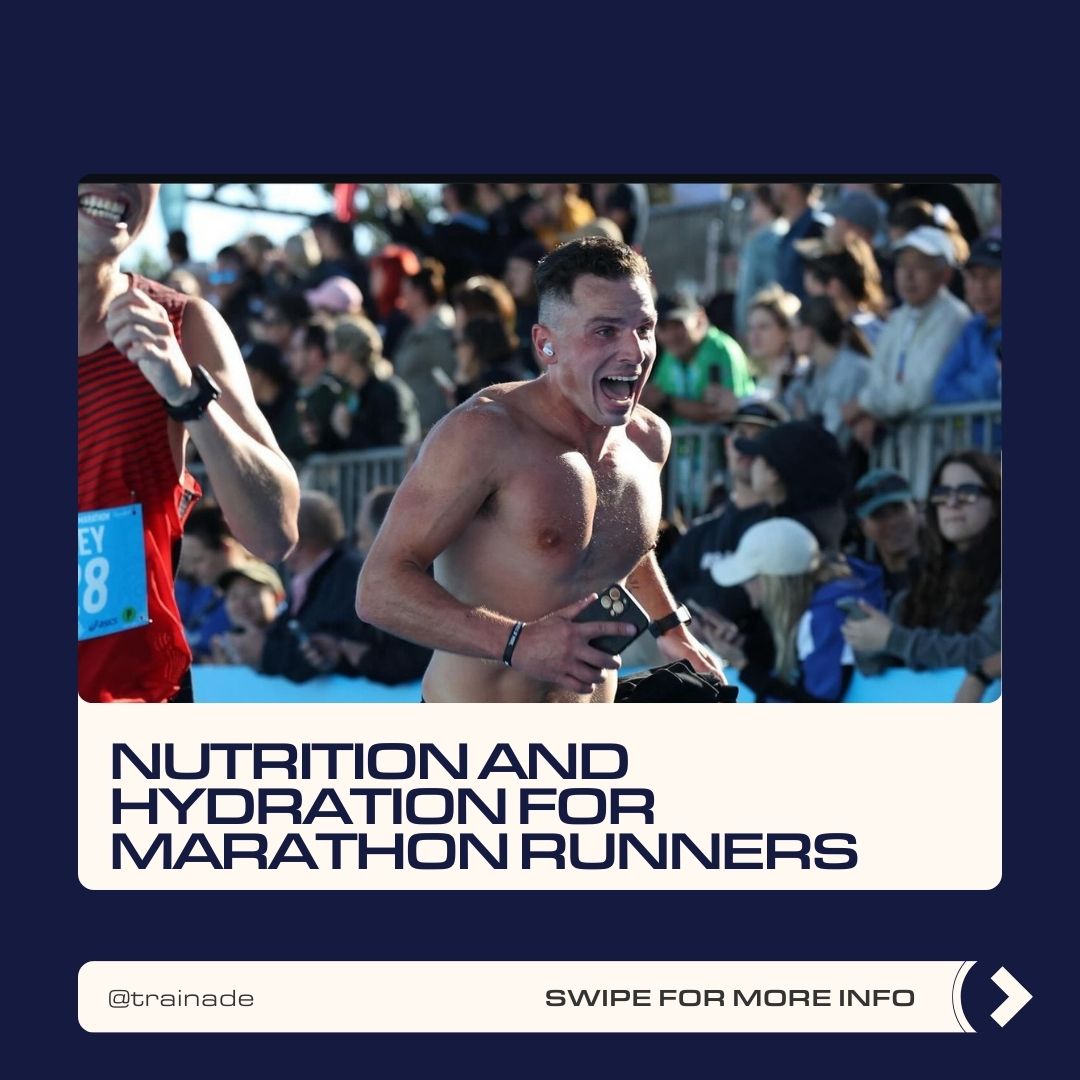Nutrition and Hydration Needs for the Half and Full Marathon
Runner’s training and competing in half marathons and marathons have been shown to cover between 50-150km a week in their training, with elite level athletes often doing 2 sessions a day [1].
Because of this, there are 2 major nutritional requirements that need to be considered to ensure that the runner is properly fuelled. These are carbohydrate intake, and hydration.
General Nutritional Needs
"General Recommendations for distance runners are between 6-12g/kg of carbohydrates per day. That is 420-840g for a 70kg runner."
The carbohydrate requirements for half marathon and marathon runners depends largely on their current training phase. However, general recommendations for distance runners are between 6-12g/kg.
In addition to this, protein and fat intake should also be considered. It is important for protein to be distributed evenly throughout the day in servings equal to roughly 0.4g/kg of bodyweight every few hours.
Fat intake should range between 20-35% of total energy intake with a focus on omega-3 fats such as olive oil and fatty fish.
Hydration Needs
"Runners should instead focus on consuming as much fluid as comfortable during a run and replacing 1.5x the fluid lost during the training."
Runners have been shown to lose on average between 0.7-1.9L/h while training [2]. Therefore, rehydration is essential both during and after training sessions.
An important consideration to make is how much fluid would be required to reach a state of optimal hydration during a run. Often, this can mean that for a runner to adequately hydrate, runners would need to drink 4-6L of water. Therefore, runners should instead focus on consuming as much fluid as comfortable during a run and replacing 1.5x the fluid lost during the training session in the next 4-6 hours.
To find your own sweat rate, weigh yourself before and after training and note how much fluid you drank during the session. From here, calculate how much sweat you lost and convert that into litres per hour.
Eating and drinking before a run
"A high carbohydrate snack should be consumed between 1-4 hours before training."
Because it is so difficult to replace all sweat loss with water during a run, it is vital that adequate hydration is achieved before the run starts. Sipping on water continuously throughout the day and having water just before training will aid in optimising your hydration. Chugging water should be avoided as only a small portion of that water will be absorbed.
When preparing for a competition, an ideal way to ensure that you have maximised glycogen storage is by carbohydrate loading during the 2 days before the race [3]. This is done by consuming 10-12g/kg of body weight in carbohydrates a day while tapering the training load [3].
For general training, a high carbohydrate snack should be consumed between 1-4 hours before training. The amount of carbohydrates depends on the intensity and time of the exercise as well as how trained your gut is to take on larger amounts of carbohydrates before exercise.
Eating and drinking during a run
"Carbohydrate intake should be between 30-120g every hour, depending on how trained your gut is to absorb carbohydrates."
If exercise is longer than an hour, it is recommended that carbohydrates are consumed while training. Carbohydrate intake should be between 30-120g every hour, depending on how trained your gut is to absorb carbohydrates.
During long competitions, it is suggested that runners vary the source of carbohydrates to avoid any flavour fatigue and keep consumption high.
As stated before, runners should attempt to consume as much water as comfortable. The addition of electrolytes is ideal in order to avoid muscle cramping while helping with rehydration and palatability.
Post-run nutrition and hydration
After a high intensity training session, race, or long run, a carbohydrate rich snack should be taken with a source of protein to maximise glycogen reuptake and protein muscle synthesis [1].
Specifically, it is recommended that 0.8-1.2g/kg of bodyweight is consumed in carbohydrates. Protein intake post-training is recommended to be 0.2-0.4g/kg of bodyweight.
As stated above, it is recommended to replace 1.5x the fluid lost during your training, race, or long run. If you have exercised for over 90 minutes it is highly recommended to use an electrolyte replacement solution in order to replace the salts that have been lost in your sweat during exercise.
If you want to make the most of your hydration on your next long run or race then try our naturally sweetened, no artificial sweetener, vegan friendly, dairy and gluten free Trainade Hydration, designed to rapidly rehydrate your body after a hard workout.
References
[1] SDA Factsheet – Distance running
[2] DOI: 10.1080/02640414.2019.1633159
[3] DOI: 10.2165/00007256-200737040-00018

